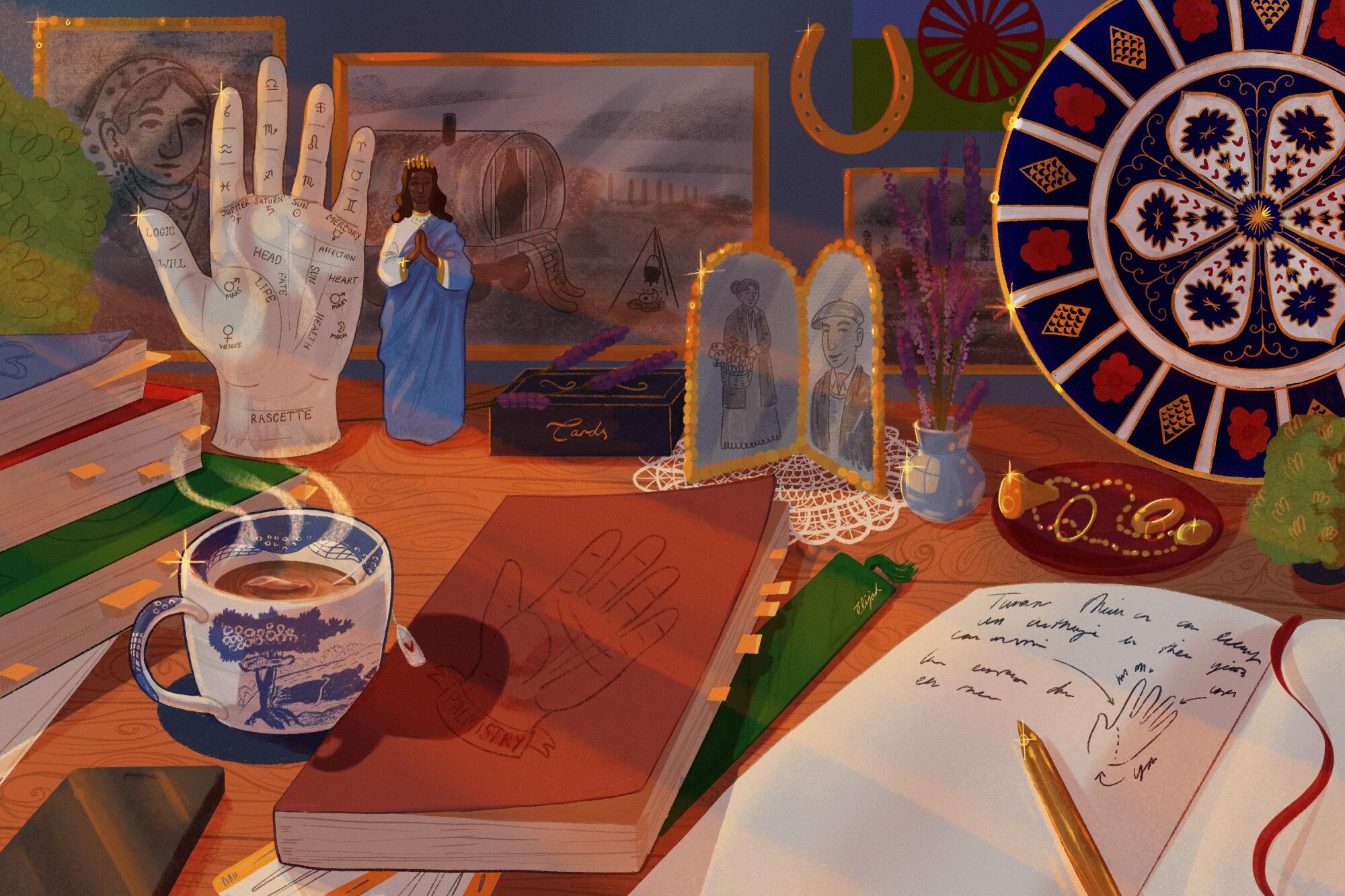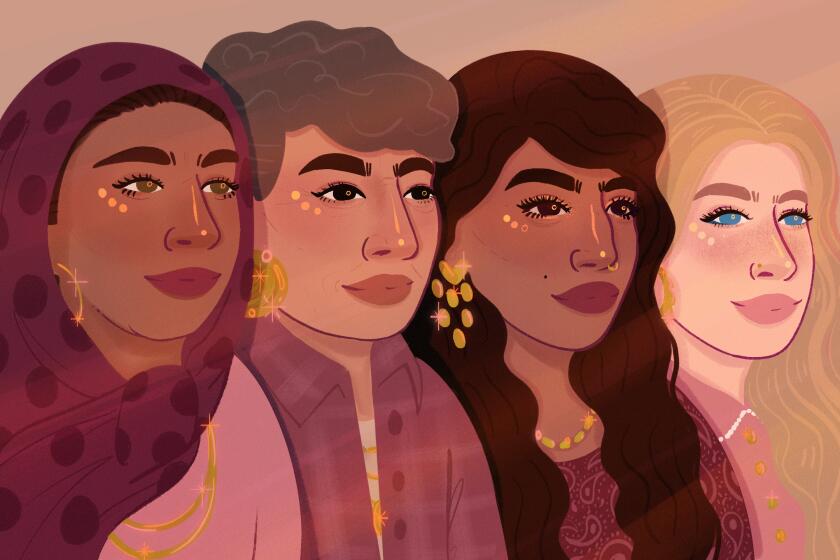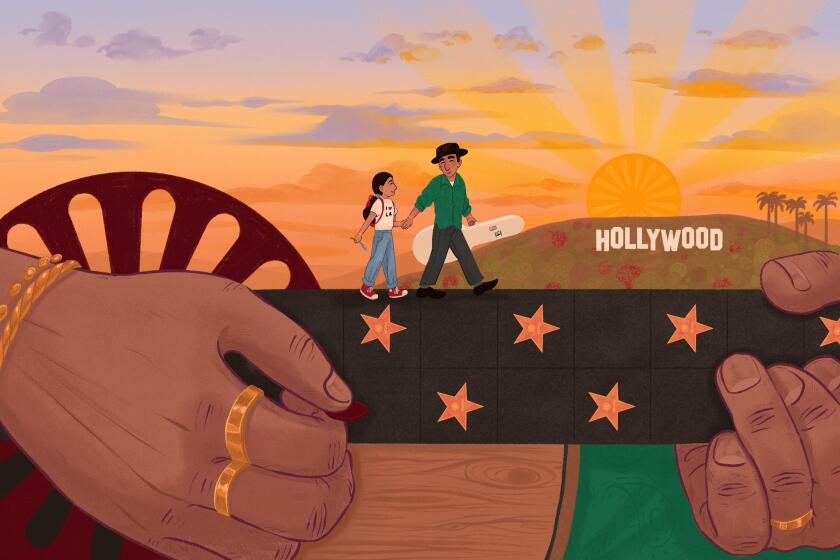
“Place two dollars in your hand and make three wishes.” This is how my grandmother taught me to start a general palm reading. It goes on to repeat multiple beliefs about pretty much every human on the planet:
“You’re a good and honest person. You don’t like being told what to do, you have many friends that ask for your help, but they are not as quick to help you. In recent years your family has grown more apart, which hurts you and scares you, and there is your reading. I’ll take the $2 now.”
Did those experiences describe what you’re going through right now? In a reading, the customer will usually be intrigued at this personal insight into their private lives. Now, before you dismiss fortune-telling as a carnival trick, you should know that it has deep roots in Romani culture and our development of human supernatural abilities. This tradition shaped me into a Romani spiritualist, or darbarno in the Romani language, and caused me to explore why our community and heritage have become so misunderstood.
I faced racism from white feminists. But Black thinkers taught me about intersectionality and I learned to define my own Romani feminism.
Growing up in a Roma household in the United States, we train at a young age to build our intuition by reciting general truths about a person. This practice, known as faith-building, is mandatory and almost free of charge for several years before the reader can dive into a more personal insight with a paying customer.

This is part of an occasional series on Romani communities. Listen to the podcast at latimes.com/foretold.
An experienced Roma intuitive will have the confidence needed to magnify their intuition. This elementary lesson was taught to pretty much everyone I knew. I was trained to believe that confidence creates superhuman ability, “just ask any American school teacher,” my grandmother would say.
Moreover, Roma connection to the spiritual and supernatural is very much internalized in our daily lives and culture. The word fortuneteller does not even live in our vocabulary. We call this ancient practice Drabarimos, which translates as spiritual medicine. For example, you may have been taught your ABCs, while I was being schooled on dreams and how they affect our daily lives. It wasn’t a structured class like something out of a J.K. Rowling novel. However, there would be many days when I couldn’t go out to play because people in my family had a “warning dream,” in which they saw something that indicates a person could have a medical emergency; or because I was learning basic Romani teachings, such as “what you fear you shall not escape,” that would later serve as valued life lessons to future clients.
But as an adult, I didn’t initially pursue the spiritual practice as my livelihood. In my family, the women, and sometimes men, had two career choices: skilled darbarno (and darbarni for a female) or failure. I opted to pursue documentary filmmaking.
Through my film work, I had the opportunity to examine the history of my ancestors’ connection to the supernatural in new ways. I learned how the practice is deeply rooted in India, where our ancestors migrated from centuries ago, and traveled with us through Persia and flourished in Eastern Europe. The practice of spiritual therapy sustained my people during the cruelest of environments in Europe, such as 500 years of slavery and the Nazis’ genocide.
Most anthropologists and linguists I’ve spoken to agree the Romani people, language and culture should be extinct considering the persecution in Europe. However, our trust in the ability to predict future events, as well as the belief that outsiders had about how cruelty to any Roma person would bring them a curse, has ensured our survival. It also provided a moderate economic means that allowed us to evolve into Europe’s largest minority.
This historical theory made me realize I would not exist if my ancestors had not practiced Drabarimos. With that, I knew our supernatural traditions needed to be preserved and I wanted to be a part of its survival as a darbarno.
There are many beautiful attributes about our culture, including our music, fashion and culinary traits. Yet spirituality is the most identifiable to others. Have you ever knocked on wood? Or used the crystal ball emoji? These are originally Romani traditions. And it’s not just superstitious housewives or naive tourists who become our clients. My clients span a huge range, including leaders from the C-suites of Wall Street, law enforcement staff and couples seeking guidance.
Roma spirituality practice does have its problems, though. European Roma outnumber American Roma, and yet, there aren’t as many palm reader storefronts in Europe compared with North America. Before the great migration of Romani people to the U.S. in the late 19th century, when my family came here, Romani spiritualists would primarily practice privately within the community or with outsiders seeking out a Romani fortuneteller, who traveled from city to city. That allowed us to have more control over how spiritual medicine was practiced. But American capitalism’s push for growth amid higher demand has meant an expansion of our work in the U.S., with fewer ways for us to maintain the integrity of the practice.
Growing up in Russia, my family wasn’t taught to be proud of our Romani roots. But the diversity of L.A.’s language and music changed us.
As with any spiritual-based business, there is always the opportunity to take advantage of someone else’s desperation, and a few have done so. This has led to negative stereotypes of Roma spiritualists as being exploitative toward clients or phony. But it’s unjust to characterize an entire community that devotes a huge part of themselves to learning and practicing spiritual knowledge as one dominated by thieves.
I fervently believe that my community needs to share our culture with the world. That is the best way to combat misconceptions that others have of us. My hope is that our younger generation preserves the spiritual philosophy within its foundation, but also that they can help make this practice more accessible to other communities.
George Eli is a Romani darbarno spiritualist based in Connecticut, the director of the film, “Searching for the 4th Nail,” and author of “The Last of the Magi.”
More to Read
A cure for the common opinion
Get thought-provoking perspectives with our weekly newsletter.
You may occasionally receive promotional content from the Los Angeles Times.












